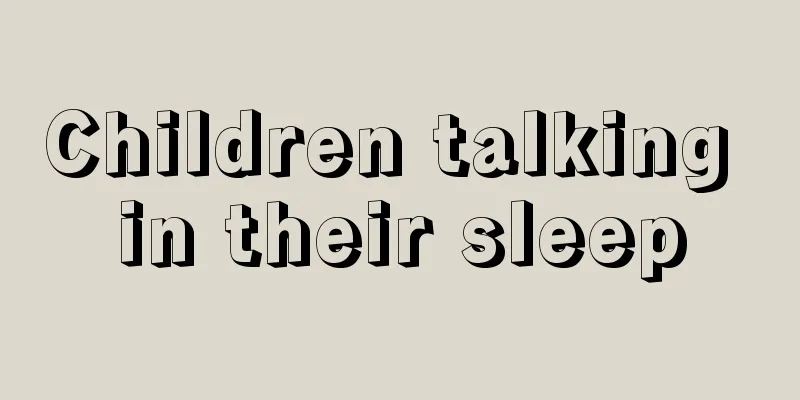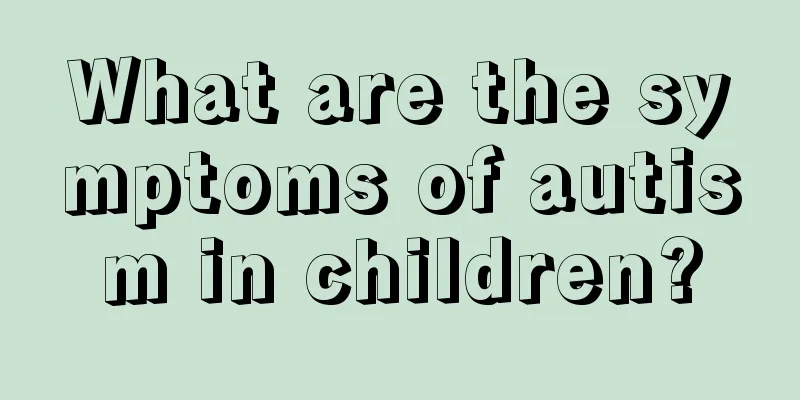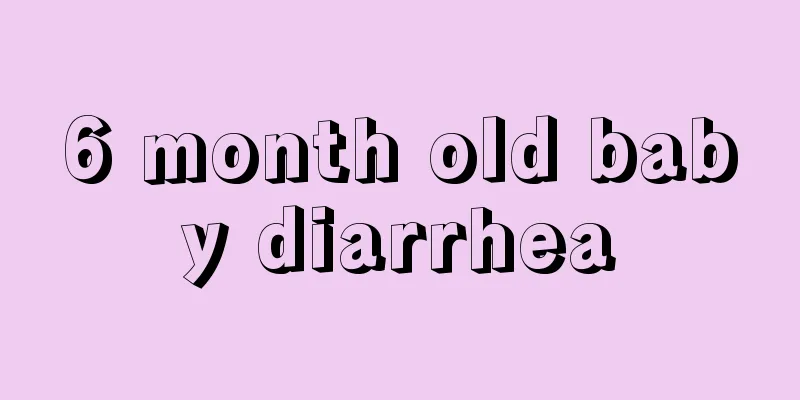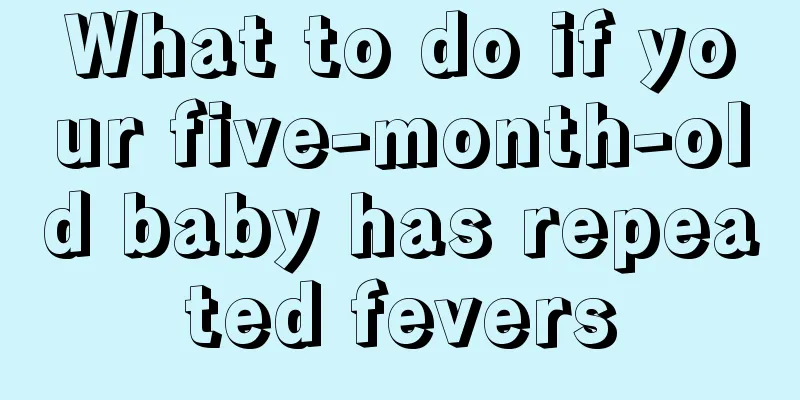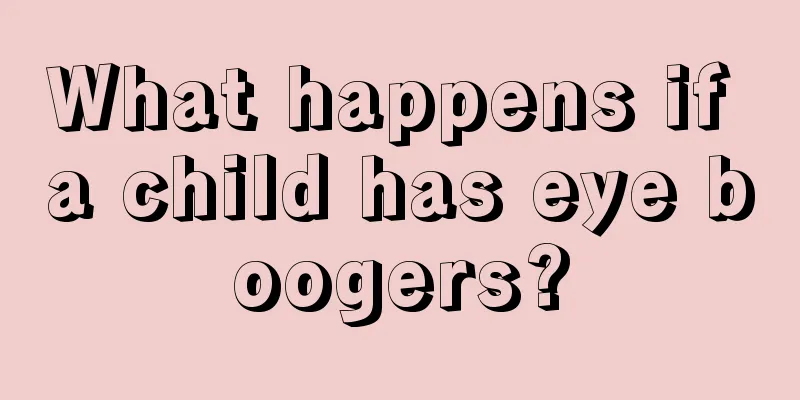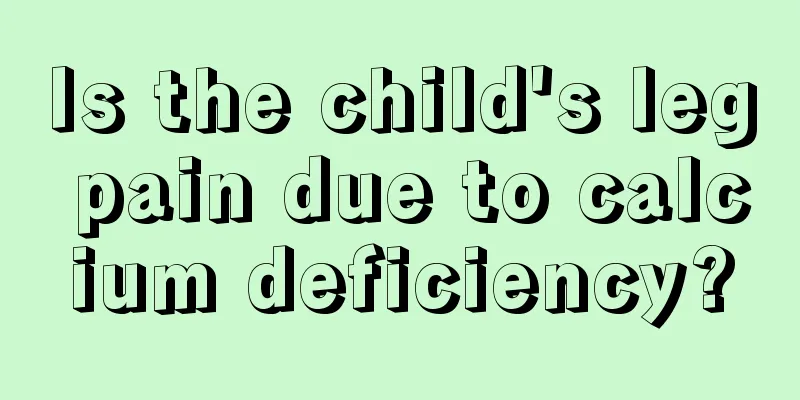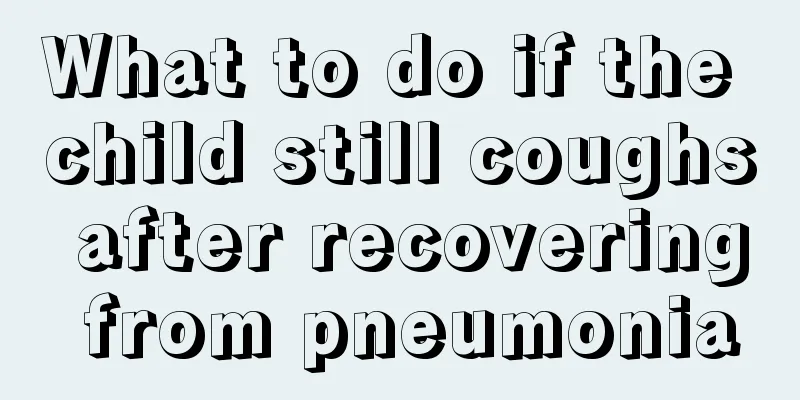What to do if your child has a runny nose due to a cold
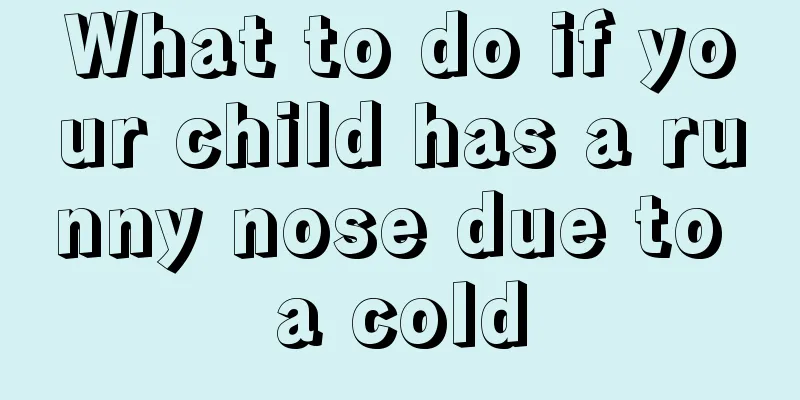
|
We all know that children grow and develop very fast. However, if we are not careful during this period, it is easy for children to get sick. For example, colds are the most common disease in our lives. Many children are prone to runny noses due to colds. If not treated in time, the disease will become more and more serious, and even fever may occur. So if we want to effectively relieve symptoms such as runny nose, we also need to master certain methods. Let’s learn about what to do if children have a runny nose due to a cold. What to do if your child has a runny nose due to a cold Winters have low temperatures and sometimes strong winds. For this reason, many parents like to close the doors and windows tightly, thinking that this can prevent children from catching cold. In fact, this is very wrong. Colds are respiratory problems, and opening windows for ventilation can greatly reduce the chances of respiratory infections in children. Especially when there is someone with a cold at home, it is necessary to ventilate the room frequently to prevent children from being infected. It’s a good thing to give children more clothes! Sometimes this practice is the cause of children's colds. Wearing more clothes will naturally make you sweat more easily. Some parents wrap their children in layer after layer for fear that they will catch a cold. If you sweat at this time, the cold wind will accidentally blow in through your neck. If sweat cools down quickly and the pores cannot shrink immediately due to sweating, germs will have an opportunity to invade. Therefore, the thickness of clothes must be appropriate, and the fabrics should be absorbent and breathable, and most importantly, soft and comfortable. When children have a cold and a runny nose, the use of medication is also very important. Many parents will give their children adult cold medicines. This will not only have no effect on the cold, but will make the child's cold worse. There are many children's cold medicines on the market, but you need to consider carefully when choosing. First of all, do not use antibiotics indiscriminately for colds. Most colds are caused by viruses. Antibiotics are only effective against bacteria and have no effect on viruses. Using antibiotics to treat colds is useless. In addition, children should pay close attention to their appetite when taking medicine because most children are picky eaters. They will be very sensitive to the slightest taste that is not right and will refuse to eat. Therefore, you can choose some fruit-flavored cold medicines for your children. 999 Children's Paracetamol and Phenylamine Granules is a good choice. Big brands are also safer for children to use. If you want to choose a children's cold medicine made from traditional Chinese medicine, 999 Children's Cold Granules is also a good choice. These cold medicines specially designed for children aged 1-10 years old also help mothers solve a series of problems such as taking medicine for their babies' colds. Winter is very dry, so children must drink plenty of water and take an appropriate amount of vitamin C. After all, vitamin C plays a certain role in preventing colds. In addition, mothers should try not to take children to crowded places as the air is polluted. If a family member has a cold, take children to sit farther away and avoid close contact, and adults should wear masks to reduce the chance of infection. Although the weather is cold, children's exercise is essential. Mothers can take their children out for exercise when the wind is relatively light and the sun is abundant. They can put a soft towel under the child's back. After the child sweats, remove the wet towel in time to avoid colds. The above is an introduction to what to do if your child catches a cold and has a runny nose. After understanding this, you must make adjustments when you encounter such symptoms again. First of all, you must eat light food and pay attention to balanced nutrition. In addition, you must also pay attention to keeping your child warm. If necessary, use some auxiliary medicines for treatment in time. |
<<: What to do if your child's ears itch
>>: Treatment of a two-year-old baby with a fever of 38 degrees
Recommend
What should a 5-year-old child eat when he has a cough?
When a 5-year-old child is sick, he or she can cl...
What to do if fetal scalp edema
Fetal scalp edema is a relatively serious disease...
What medicine should children take for cold and cough
Babies are very likely to develop coughing sympto...
What should children avoid eating when they have acute gastritis?
Acute gastritis is one of the common acute gastro...
What are the symptoms of ADHD in children?
What are the symptoms of ADHD in children? This p...
What should I do if my child vomits due to gastrointestinal cold?
People will suffer from various gastrointestinal ...
How to treat children's eczema
Eczema is a common childhood disease. Since child...
At what age can a baby laugh?
Many parents are particularly concerned about the...
Why does the baby suddenly wake up while sleeping?
When babies are sleeping, they may suddenly wake ...
How to do outdoor sports for children?
Children are the apple of their parents' eyes...
What is the cause of bloody mucus in baby's stool?
If there is blood and mucus in your baby's st...
Can children take anti-inflammatory drugs for toothache?
Toothache is a relatively common phenomenon. Not ...
What are the dietary treatments for children with phlegm and cough?
Although children's cough is a common lung di...
What should I do if I have a fever the next day after getting a vaccination?
What is meningococcal meningitis? Simply put, it ...
What are the causes of stomach pain symptoms in children?
At present, many families have only one child. Ma...

